ChatGPT Atlas launch live — OpenAI takes on Chrome with new browser
A ChatGPT internet browser is here

OpenAI announced its latest product: OpenAI Atlas, the company's first-ever browser. The whole even was shared via live stream and is here if you'd like to rewatch via the OpenAI YouTube channel.
ChatGPT Atlas — 5 things you need to know
OpenAI just dropped ChatGPT Atlas, a brand-new AI-powered web browser that brings ChatGPT directly into your browsing flow. Here’s what makes it stand out:
- It’s a full browser, not a plugin. Atlas isn’t just ChatGPT in a sidebar, it's actually a fully featured browser (think tabs, bookmarks, incognito mode) with ChatGPT built in from the ground up.
- A browser that understands context. Atlas sees the page you’re on, your open tabs, and your web history (if enabled), giving more accurate, in-the-moment help across research, shopping and productivity. You can browse privately, clear history, or opt into “browser memories” that help ChatGPT surface past pages or resume unfinished tasks.
- You can talk to it like an assistant. Want to reopen a recipe from yesterday? Or clean up your tabs? Just ask — Atlas responds to natural language and acts on your behalf.
- Agent mode can take over tasks. A new preview feature called agent mode lets ChatGPT do things for you: summarize pages, book travel, plan projects, and more. Available for Plus, Pro, and Business users only.
ChatGPT Atlast is available now on macOS for Free, Plus, Pro and Go users. Windows, iOS, and Android are coming soon. Download at chatgpt.com/atlas
LIVE: Latest Updates
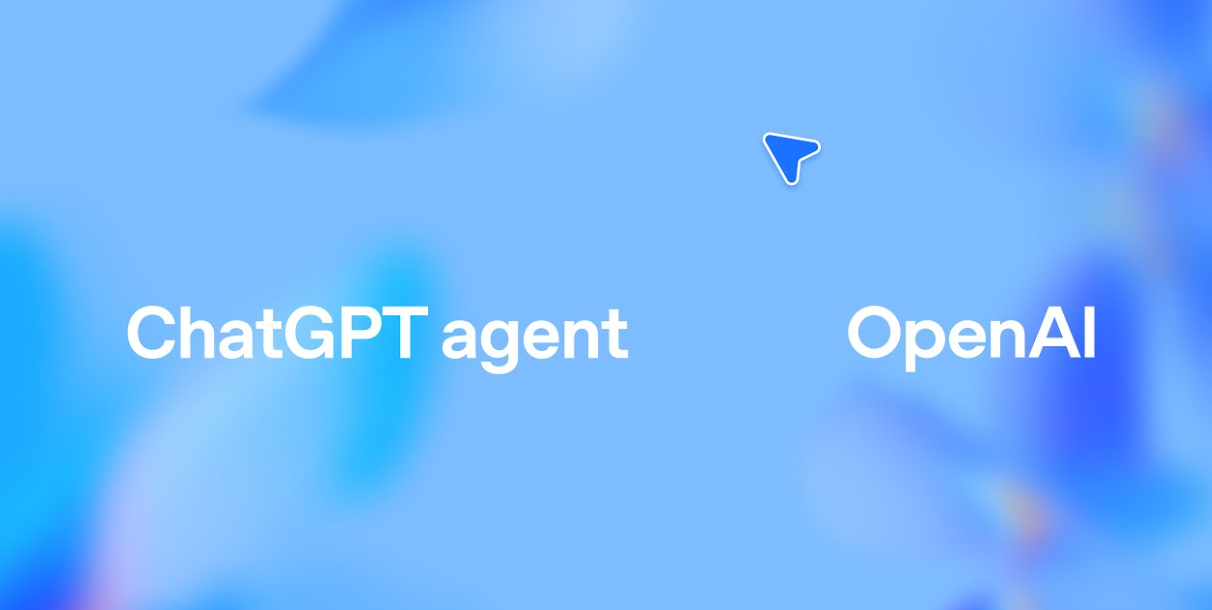
An OpenAI browser has been rumoured for a long time. We reported on it back in early July when Reuters reported that it could be here in a few weeks.
Obviously, that timeline has changed quite drastically, but OpenAI is well-known for its delays. While it isn't 100% confirmed that this event will be the browser, it would make sense.
It wasn't long ago that ChatGPT Agent was announced. This would be an important function in an AI browser, allowing the AI model to complete commands on your behalf. For example, ChatGPT Agent can perform a variety of web searches on your behalf, sort your emails, or even cancel your subscriptions.
Unlike traditional browsers, AI alternatives take on more of the grunt work for you, while showing both its thinking and asking for you to confirm you are happy before it completes big commitments like making a purchase.
What could an OpenAI browser look like?
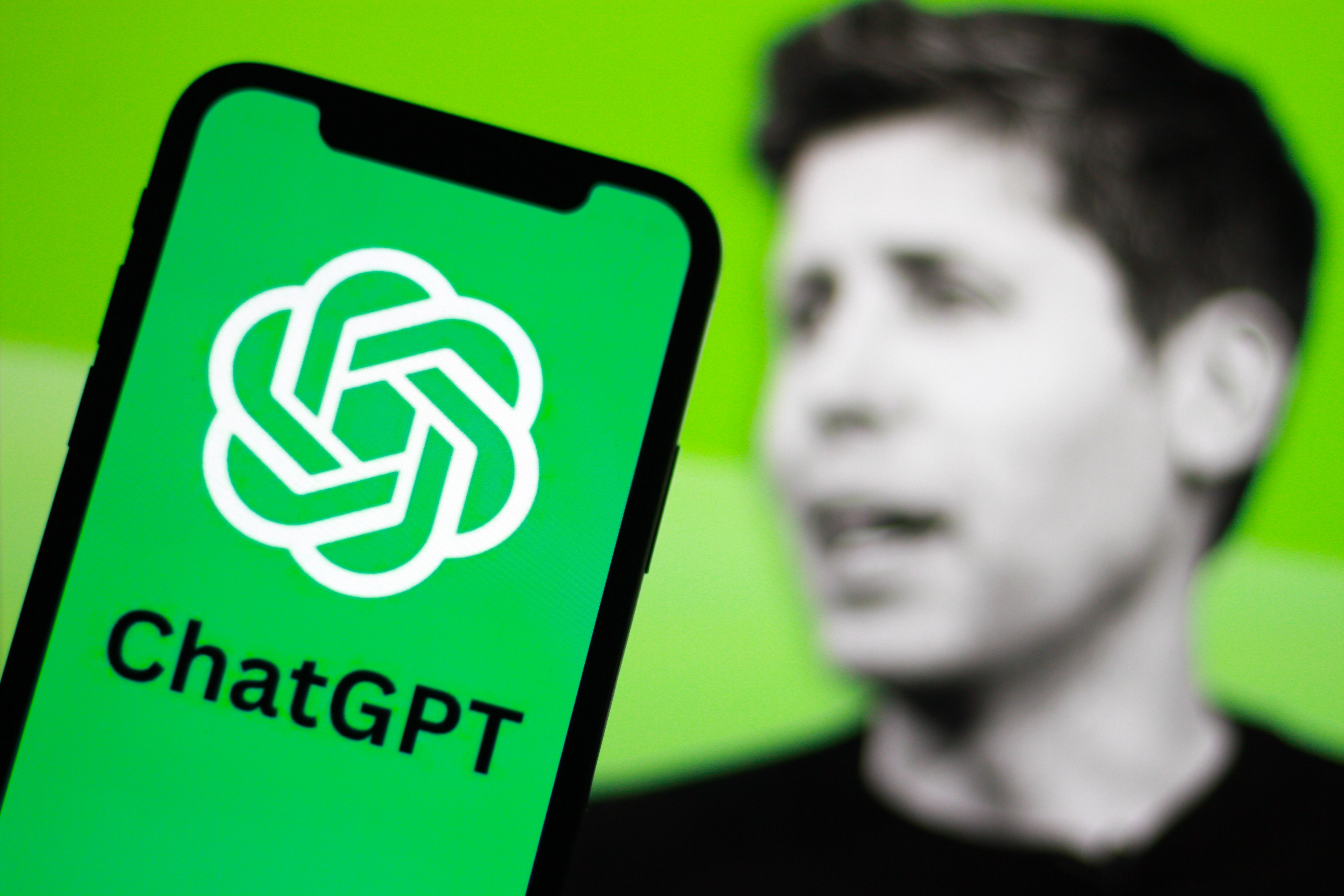
AI browsers have rapidly grown in popularity. In some cases, like DuckDuckGo or Google, the system simply adds AI features to an existing system.
In other cases, like the recently launched Perplexity Comet, it is a completely new system with AI at its core. For OpenAI, it will be the latter.
Looking at Perplexity’s Comet, this will most likely mean a browser that makes the most of having an AI assistant on board. This could allow you to have the agent fill out forms for you, find the best prices on a product, or explain a particularly confusing news article you’re looking through.
Where Chrome’s default page takes you to the Google search bar, OpenAI’s browser would more likely take you to a version of ChatGPT. While you can search the internet using ChatGPT, it doesn’t involve you in the process. With a browser, the AI chatbot would likely become a secondary feature to the search engine.
Could OpenAI finally topple Google?
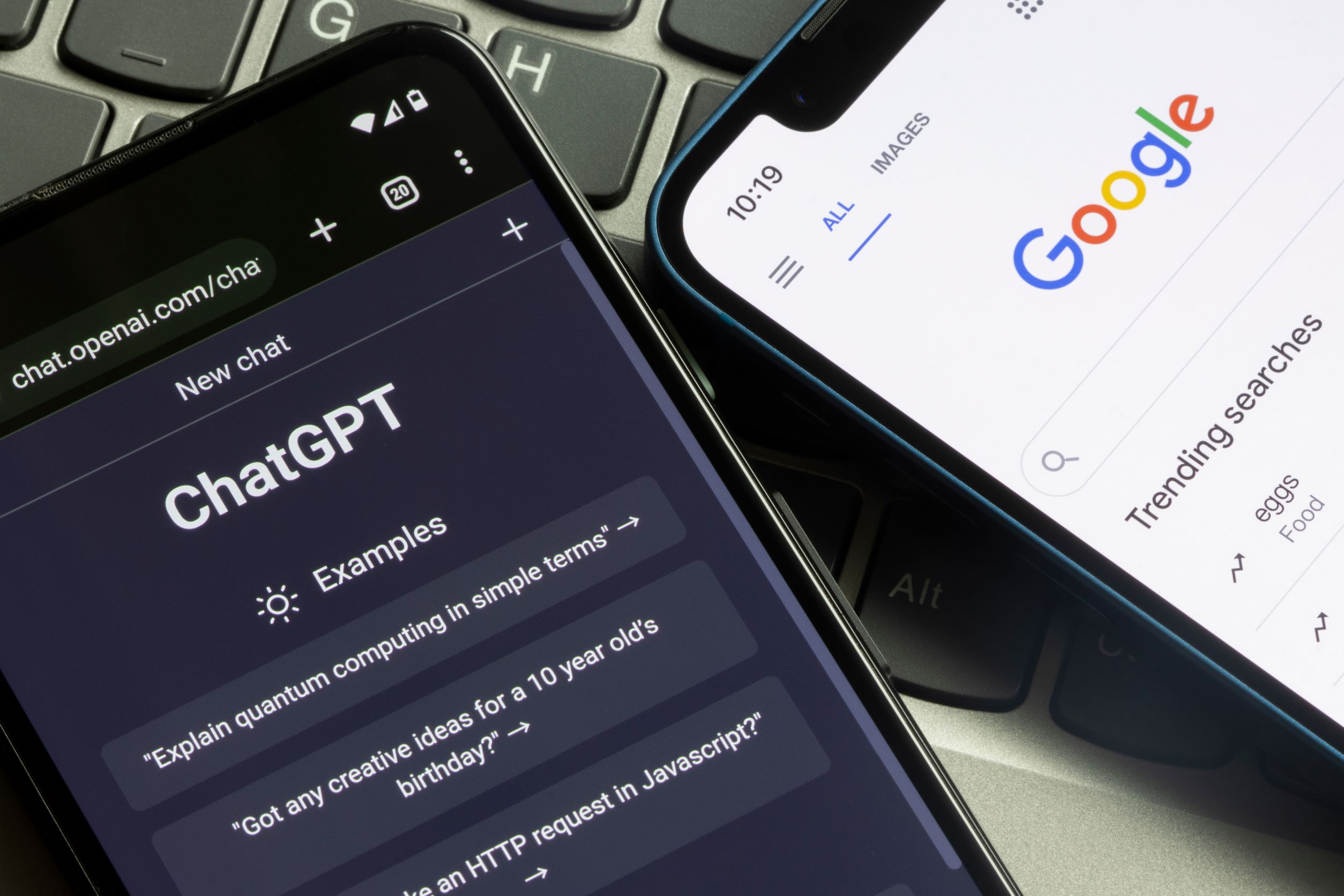
The live blog hasn’t even started yet, and OpenAI is already hitting Google where it hurts. It has just been revealed that Alphabet stock has fallen by 4% following OpenAI’s announcement post.
This reflects a concern that Google has faced for a while now. For a long time, it has been the dominant force in search, but with the growth of AI, new competitors are coming in.
While other AI browsers have come before, none have quite the same following that OpenAI has. This, in theory, could be the competitor that finally topples Google in the search competition.
Is OpenAI building the ultimate shopping browser?
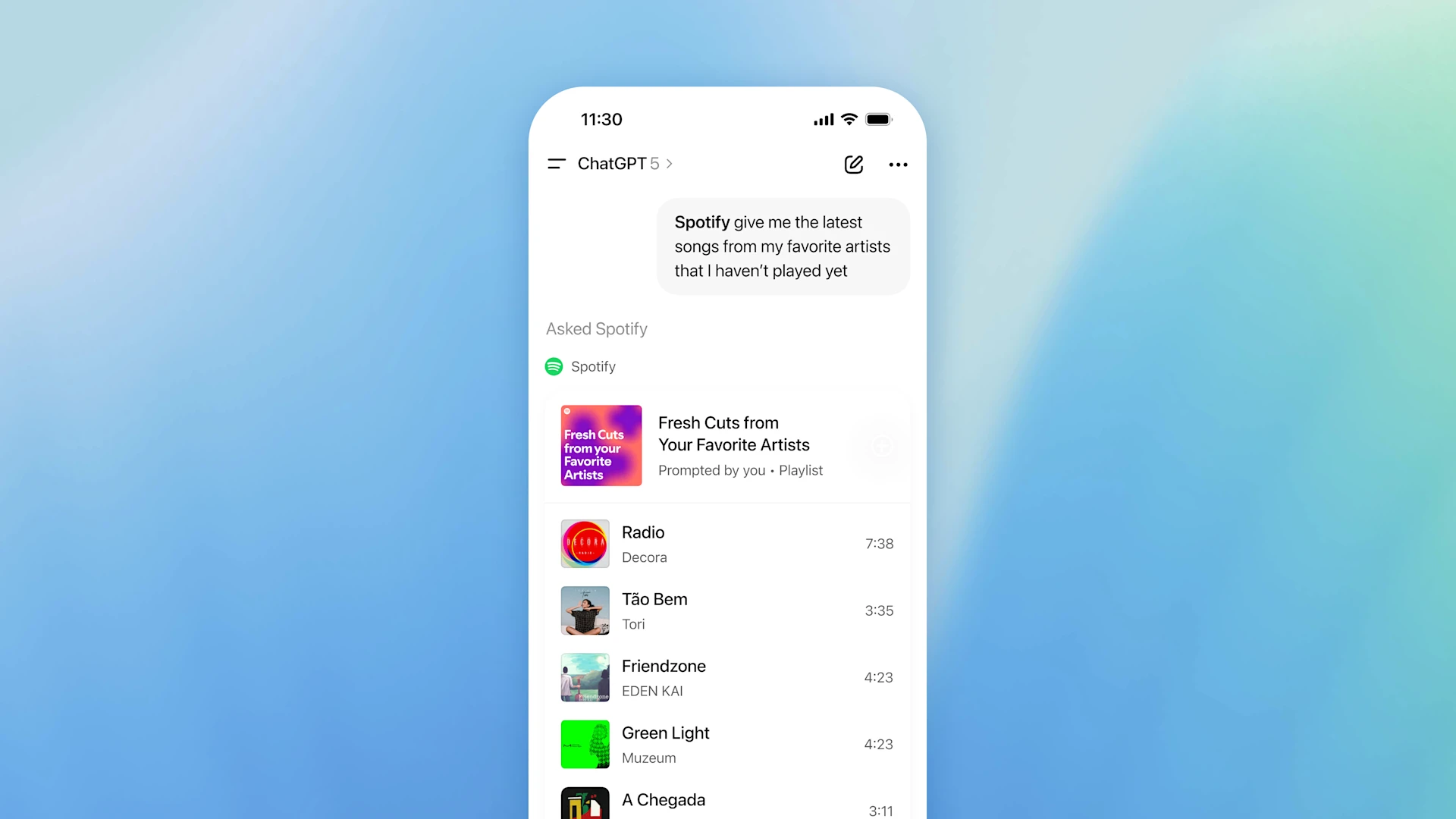
Recently, OpenAI announced a range of partnerships with companies such as Spotify, Booking.com, and Zillow. Through these partnerships, ChatGPT will automatically offer the ability to interact with these companies’ websites when they are mentioned.
For example, asking ChatGPT to “Make a Spotify playlist for a Summer BBQ with an upbeat indie feel” would do exactly that. This would prompt a Spotify button to appear and, if you connected the two apps, would allow ChatGPT to make that playlist directly in your Spotify account.
The same could be said for any of the apps that OpenAI paired up with, finding house listings that fit your criteria, or directly booking a holiday with specific requirements on Booking.com.
This, paired with ChatGPT Agent, could make an OpenAI browser far smarter than anything that’s come before. Most notably, entire holidays could be booked, great prices found, and your dream house tracked down without you really having to lift a finger.
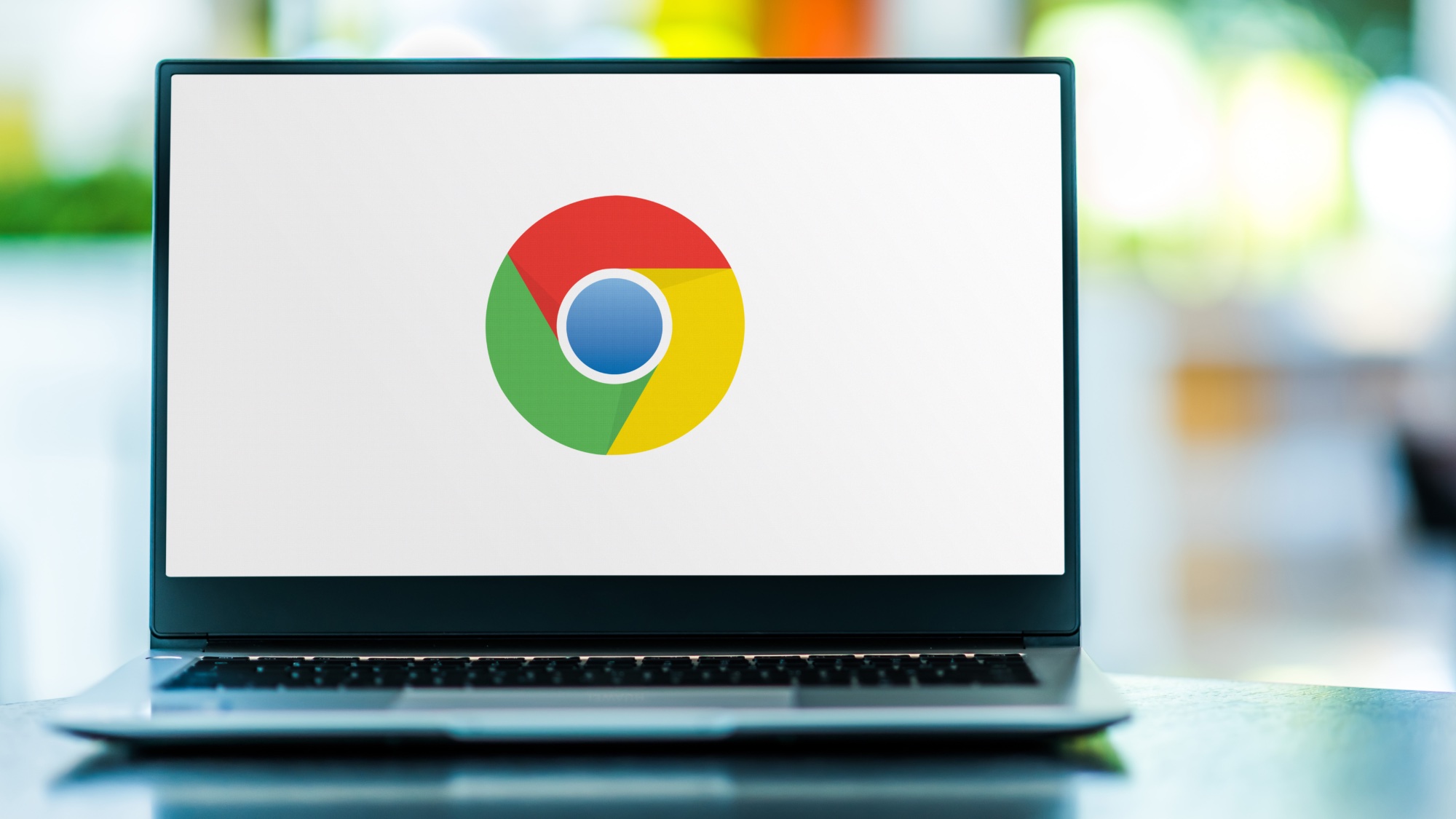
And its official! Today OpenAI will be unveiling ChatGPT Atlas. As shown by the livestream countdown on the OpenAI YouTube channel, with the description “Introducing our new browser, ChatGPT Atlas”.
It is highly likely that this browser will be built on Chronium, which is the same structure that Google uses for, you guessed it, Chrome. While OpenAI could surprise us by revealing its own system entirely, it is unlikely.
This would take a huge amount of work and money to pull off and, quite frankly, just wouldn’t be worth it for OpenAI to do.
With the event starting soon, load up the liveblog and take your seats.
What to expect from OpenAI’s AI-powered web browser
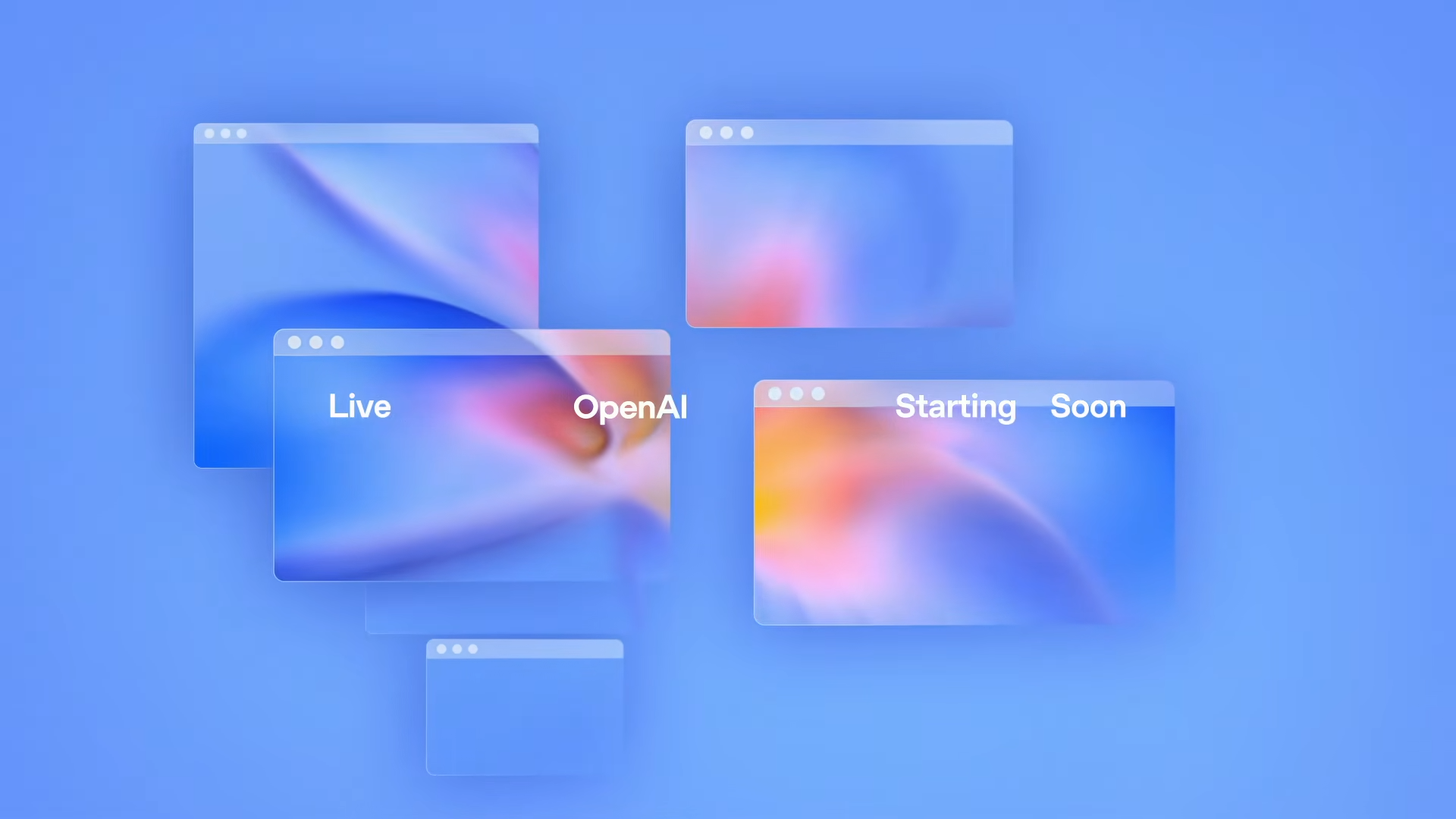
The browser is rumored to be built on Chromium, which means it should support most websites and browser extensions. But the real highlight is integration with OpenAI’s “agent” technology — a system designed to help users actually do things on the web. Imagine booking a flight, comparing hotels, or completing a government form just by asking the browser to handle it.
Early images suggest a native ChatGPT-style interface embedded into the browser window, so you won’t need to flip back and forth between tabs or apps. Everything — browsing, asking, acting — happens in one place.
This would put OpenAI in direct competition with Google Chrome, Microsoft Edge, and even Perplexity’s new Comet browser — all of which are racing to build smarter, more helpful web experiences.
The product may launch first on Mac, with Windows and mobile versions coming later. But we will know in less than a minute. Stay tuned.
ChatGPT Atlas is here — what to know
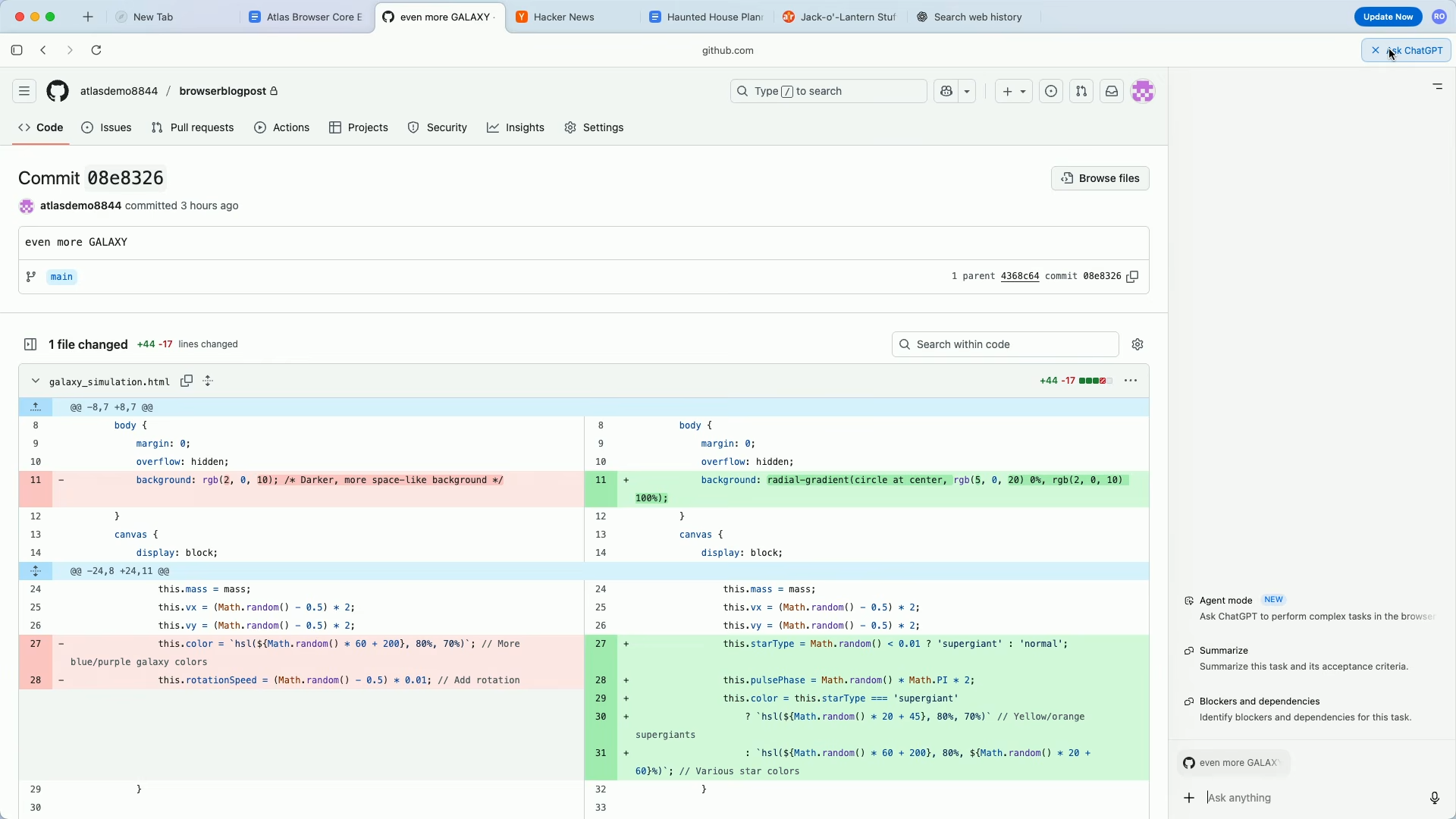
"What if you could chat with your browser?" That's the question the OpenAI team wanted to answer. In other words, ChatGPT is the beating heart of Atlas. It should feel very familiar with three very core features.
Built around ChatGPT, this browser "rethinks what a browser can do," says CEO Sam Altman. He believes the chat experience should be integrated within the browser. You could chat with the page, use Agent and other opportunies that we haven't see before.
As the website is up, it will help and add context from anywhere, plus, it will have memory. It will be more personalized and understand you much better. It's fast and able to handle more than the typical browser. ChatGPT Agent will be able to help you book reservations, shop and more.
ChatGPT reads your web page for you (but it's optional)
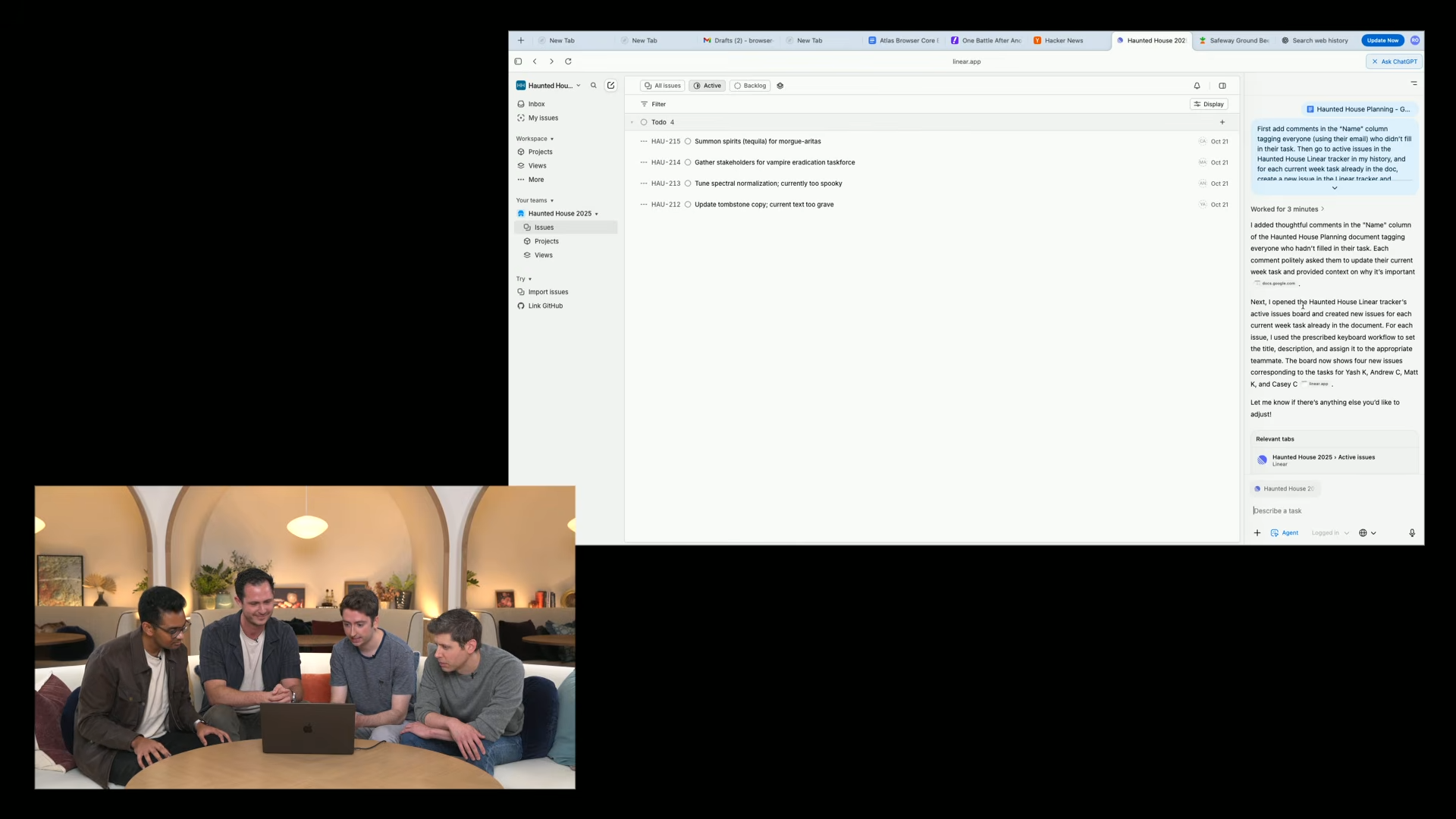
ChatGPT Agent helps you shop by taking over your browser. It is a collaborative agent, you can take control at any time, but will take over as long as you need it to. For example, when you're shopping with Instacart, it will add things to your cart.
Don't worry, ChatGPT Agent is in your tabs. You will always be able to decide when it is logged in or logged out. Before any given task you can determine if you need it to help you or not.
All of the support is completely optional and you can manage it in settings.
ChatGPT follows as you browse
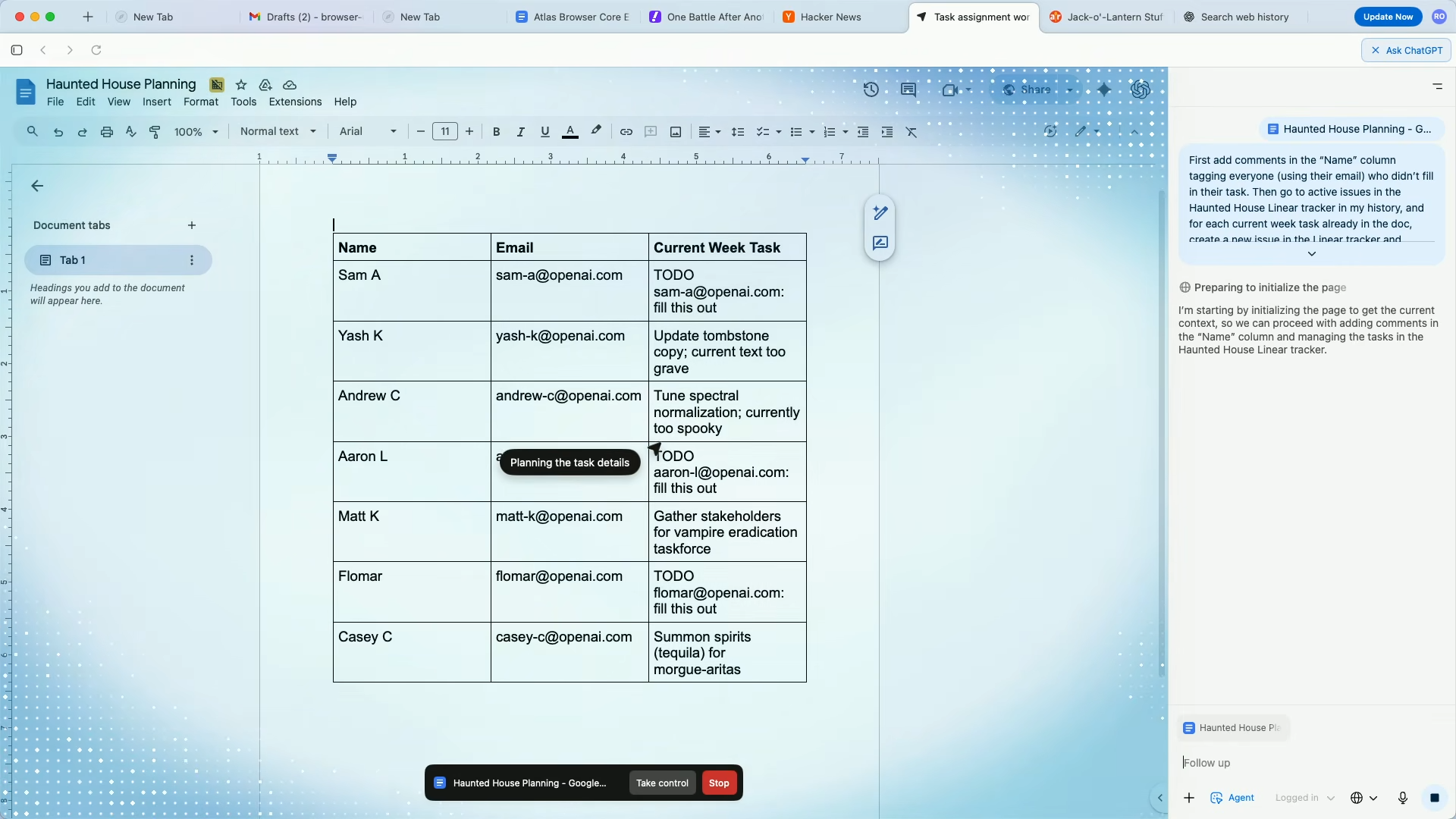
"It makes you more curious," Sam Altman says about ChatGPT Atlas. He suggests keeping the browser open and allowing the browser support your workflow. For example, you could search for a movie you are interested in and see movie reviews, info about the actors, summaries and more.
The team has made changes to Search within Atlas. One of the first things you notice when you search within Atlas is you'll see what you've searched, all without losing that core chat experience.
ChatGPT Atlas stays with you as you search supporting you as you go. This is powerful because it offers a multi-turn experience. It offers greater flow so you get more of what you're looking for while encouraging curiosity to learn more.
Say hello to ChatGPT Atlas: The browser with ChatGPT built in
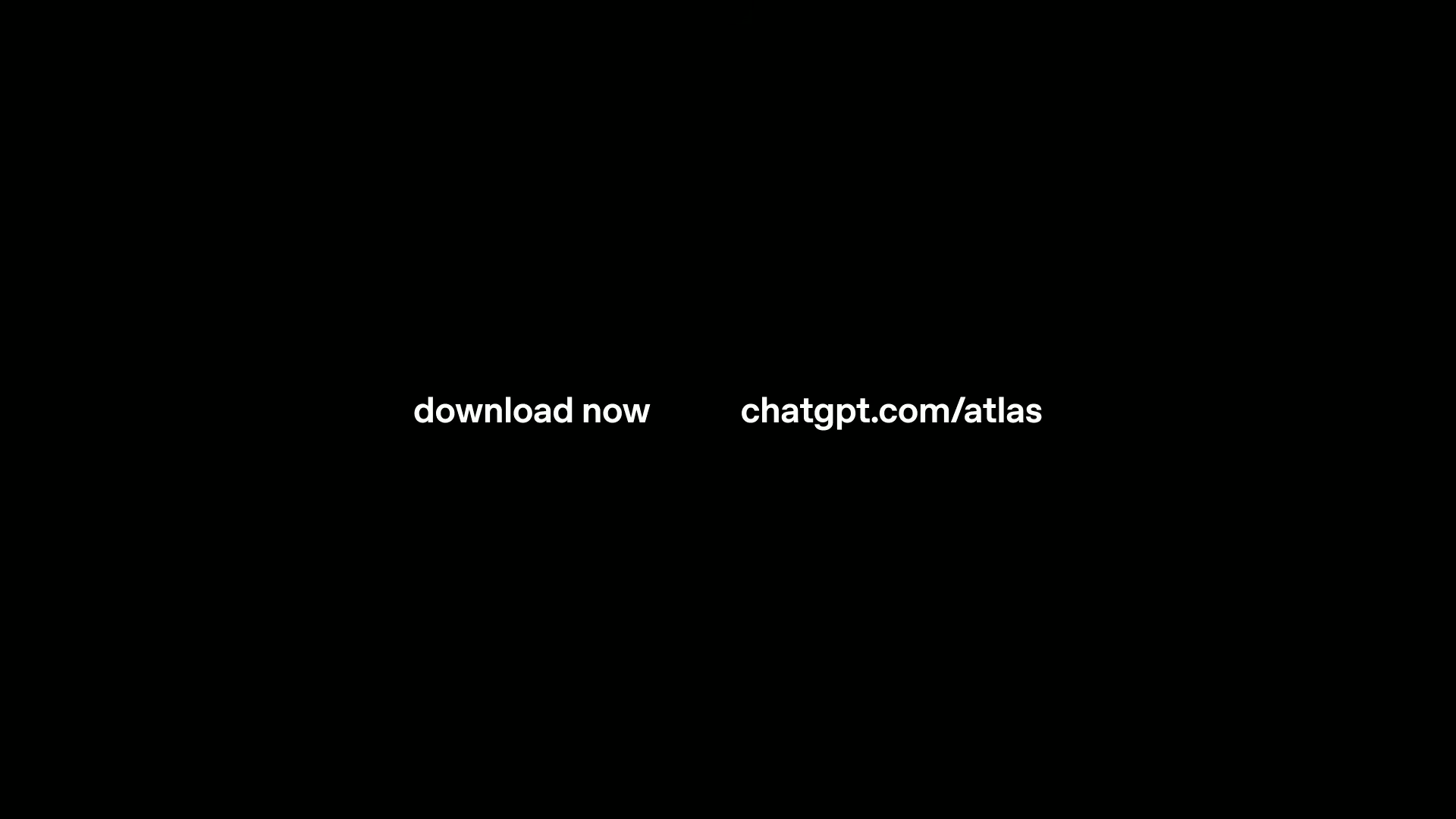
OpenAI just revealed ChatGPT Atlas, the company’s first dedicated web browser; one built from the ground up around its flagship chatbot and task‑agent technologies. The browser arrives initially on macOS, with Windows, iOS and Android versions promised soon.
What makes Atlas different isn’t simply that ChatGPT is accessible in a sidebar or tab. Sam Altman made it clear that the browser is designed to let the AI act on your behalf: summarizing webpages, filling‑out forms, booking reservations, and threading context across multiple tabs. Essentially, ChatGPT Atlas will have context for everything you’re doing online from your browser history to your search requests.
For users, this means less switching between ChatGPT and other tabs, so you’re browsing and conversing and acting all in one place. For OpenAI, the browser is a strategic leap: away from purely chat‑based interfaces toward owning the gateway to the web. The browser runs on Chromium, so it supports current web standards and infrastructure while layering OpenAI’s intelligence.
Of course, questions remain: What about privacy and how much browsing context is shared? And will users adopt a whole new browser when they’re already comfortable with Chrome, Edge or Safari? Regardless, ChatGPT Atlas represents one of the boldest experiments yet in rethinking what browsing could be.
How ChatGPT Atlas could disrupt Google Chrome amid the AI browser wars

Now that OpenAI has a signature browser, it's safe to say that it will be a direct challenge to incumbent browsers like Google Chrome, Microsoft Edge and others vying for tomorrow’s web user workflows.
Chrome dominates globally with billions of users and is deeply entrenched in Google’s ecosystem of search, ads and browser extensions. OpenAI’s entry with Atlas suggests the company believes the next frontier is far more than agentic browsing but also AI assistance that helps you navigate the web in real time.
Why does this matter? If users start doing more of their web tasks through Atlas, OpenAI could capture more browsing data, attention and potentially revenue, which could shift power from search engines to AI‑powered environments. The browser foundation (Chromium) ensures compatibility, but the AI layer is the differentiator.
From a strategic lens, the browser puts OpenAI in a full‑stack position while simultaneously raiseing questions about extensions, ecosystem compatibility, privacy and how willing users are to adopt a brand‑new browser.
If Atlas succeeds, the “browser war” might look very different in a year or two.
You must confirm your public display name before commenting
Please logout and then login again, you will then be prompted to enter your display name.

